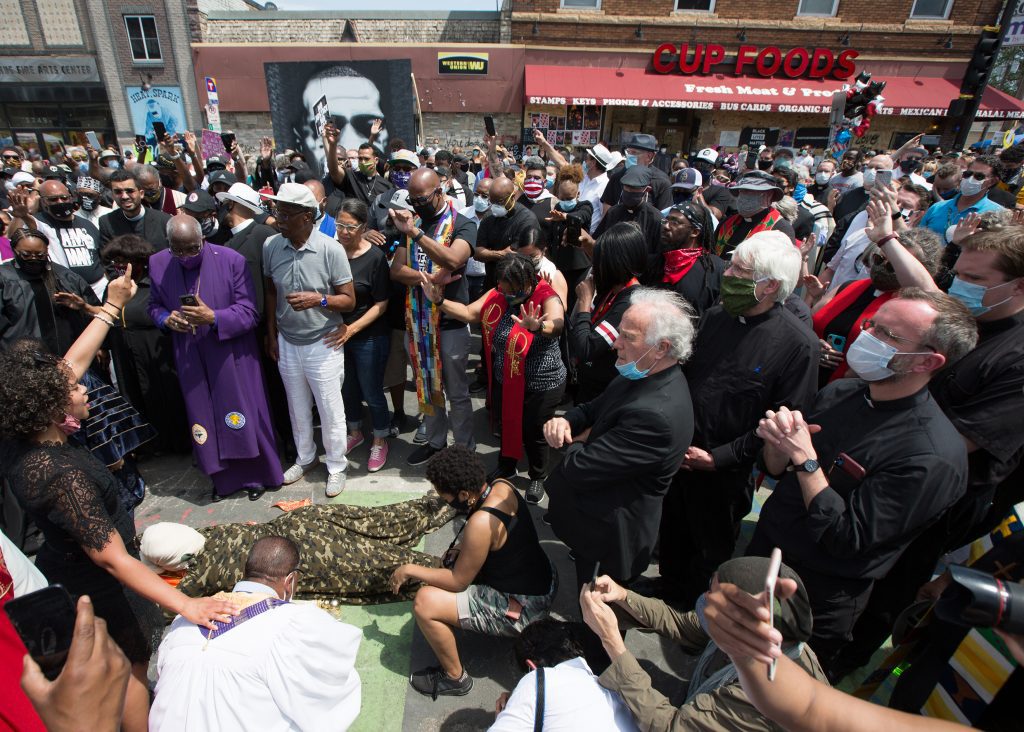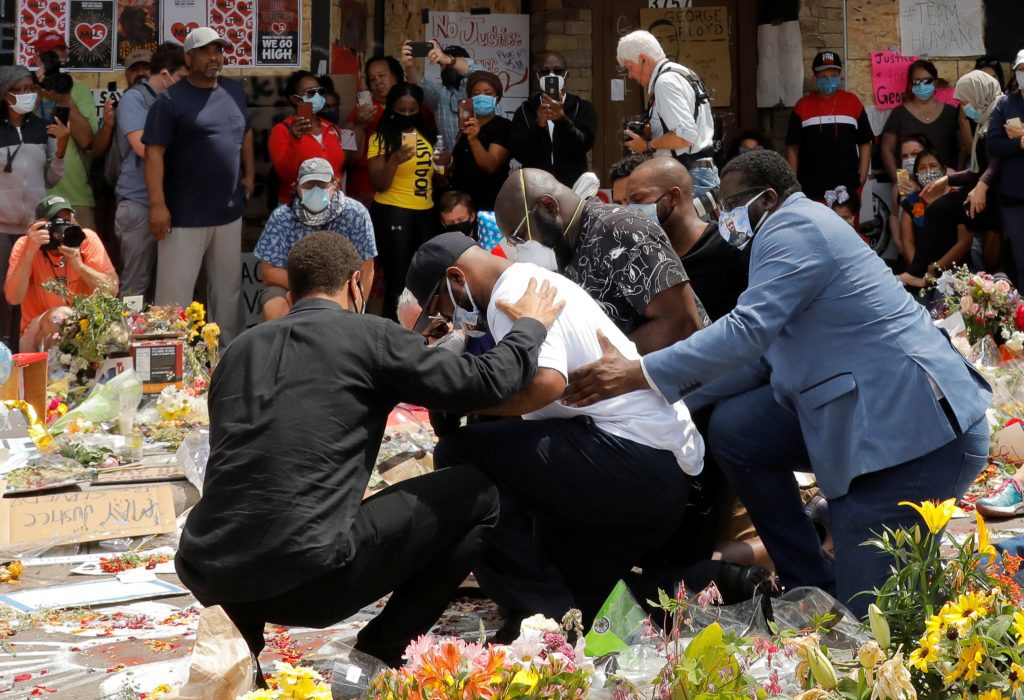
Bishop Joseph C. Bambera’s Reflection on George Floyd’s Death
June 5, 2020
In the immediate days following the brutal killing of George Floyd, the world reacted with horror to the images of his struggle to breathe and to hold on to life. Countless numbers of individuals from throughout our country and world offered words of condemnation, sorrow and grief. I penned my name to a statement along with six other U.S. bishop chairmen of committees within the United States Conference of Catholic Bishops. Peaceful protests ensued in cities and towns throughout our land with participants crying out for an end to the injustice of racism and the hatred associated with that sin.
For me, however, the message and power of this time of upheaval and pain were most vividly captured in the visit of Terrence Floyd to the makeshift memorial located at the site of his brother’s killing. Floyd knelt for a moment and then, surrounded by signs that simply said “Black Lives Matter,” rose and addressed the gathered crowd with these words, “My family is a peaceful family. My family is God-fearing. … Let’s do this another way. Do this peacefully, please.”

The combination of Terrence’s spoken message with those three words, “Black Lives Matter,” teach a lesson that we would all do well to sear into our minds and hearts. Floyd challenged the crowds to speak to the injustice of his brother’s death “peacefully,” echoing the very words of Jesus in the Beatitudes, “Blessed are the peacemakers, for they will be called children of God.” The silent, printed words proclaiming “Black Lives Matter” captured an essential component of the Gospel message. Black lives do matter. For black lives, like every life, are made in the image of our Creator. And as such, peace will only come to pass when every life is treated with respect and dignity as the gift of God that it is.
As I watched George Floyd’s brother continue to address that crowd in Minneapolis and challenge them to a peaceful way forward, I couldn’t help but wonder what so many of those who listened to his words were thinking. I wondered if many of them feared to walk in their neighborhoods simply because of the color of their skin. Considering our history, particularly in recent years, I cannot imagine what it would be like to grow up as a young black man in America today.
It occurred to me at that moment, more than ever before, that Terrence Floyd’s call for peace in the face of the brutality and sin that so mercilessly snuffed out the life of his defenseless brother, far from being political or ideological as some might suggest, was nothing short of a plea for justice in our land. His words were a reminder to all of us that as a people who have proclaimed so boldly the absolute value of human life from the moment of conception until natural death, every life in between is just as deserving of respect and reverence.
We Christians are proud to assert our commitment to life. Sadly, however, we often lose our focus upon this noble cause – by the violence, looting and destructive elements that have infiltrated the peaceful efforts of so many who rightfully seek justice and equality – or by a host of other distractions that many of us do subtly or even unknowingly until we turn inward and examine ourselves. In turn, we can begin to pick and choose what is worthy of respect and what is not, at least in our own minds. Yet, nowhere in our faith tradition is it ever suggested that we are meant to determine who is worthy of redemption and who is not. That is a task left to God alone.
May we be humble enough in the face of division to admit our need for conversion as we seek to confront the evil of racism in our land. May we resolve at this moment in our lives and in our history as a nation to embrace the call of Isaiah the prophet to beat our swords into plowshares and our spears into pruning hooks and so labor for God’s gifts of peace, reconciliation and unity. And may we finally begin to live with authenticity the one command of Jesus: “Love one another as I have loved you” (John 15:12).
